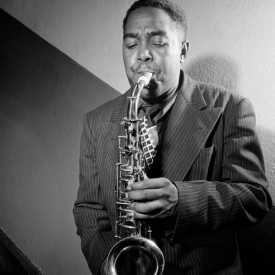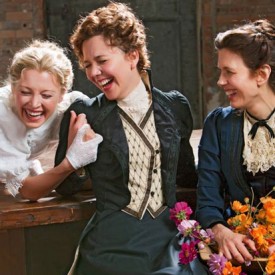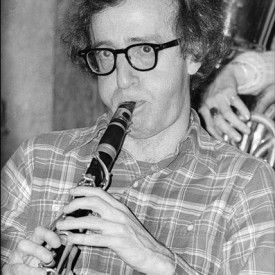Young Writer at Work: The Art of Fiction No. 1
“But I think, to be blunt, that writing about a total asshole is entertaining, and write about someone who is nice, happy, and energetic is boring.”
 Chapter: SchoolLess Speaks
Chapter: SchoolLess Speaks
By Jason Dubow
S choolLess is what he calls a “happy depressant.” By this he means a happy, energetic guy who comes out as cynical, mean, and depressed on paper. He enjoys music, writing, eating, and laughing, though he would like to do all of them more. This interview took place at his house, on his bed. He is drinking red tea and hardily eating a horseradish pickle. He is under a down blanket with his cat, Abe, and is listening to “Wagon Wheels” by Sonny Rollins. “It just makes me feel like the stress of the world falls off my body,” he says, “and nothing bad could ever happen.”
What purpose does fiction writing serve you?
SCHOOLLESS
 Fiction writing for me is just like music or sculpture or dance or other forms of art. It is an indirect way for me to express myself. I’m not trying to ask for something from another person through my writing, I’m just trying to get my feelings out and let people know who I am. People have always seen my mind as unusual. I don’t know whether this is positive or not.
Fiction writing for me is just like music or sculpture or dance or other forms of art. It is an indirect way for me to express myself. I’m not trying to ask for something from another person through my writing, I’m just trying to get my feelings out and let people know who I am. People have always seen my mind as unusual. I don’t know whether this is positive or not.
My brain is like a silo, storing things from life. The difference between my brain and a silo (besides the obvious ones, i.e. one is an organ and one is a cylinder of metal used on farms) is that silos let their contents out, but my brain never did. Writing has been my only way to comfortably express my feelings, because of both its indirectness—saying things through characters, mainly, but also plot, scene, and moral—and because I don’t really like to talk; talking shows my emotions too well. Plus I seem smarter when I have time to think about what I’m going to say, which one can’t do as well while talking.
INTERVIEWER
Most of your stories have similar main characters: old, lazy, depressed, and usually fat and ugly. Do you associate with this type of person in any way?
SCHOOLLESS
I try my hardest to act young, happy, and controlled. But I think, to be blunt, that writing about a total asshole is entertaining, and writing about someone who is nice, happy, and energetic is boring. I think the ugly aspect enhances the character’s depression.
INTERVIEWER
Are you a total asshole?
SCHOOLLESS
Depends. Sometimes. Truthfully, it’s a lot of fun when I am, but I end up feeling guilty. Others may disagree, but most of the time I think I’m a reasonably likeable person.
INTERVIEWER
How has home schooling changed your writing?
SCHOOLLESS
My writing has been able to improve because of the personalization of everything. No wasted time with classmates’ comments like “I ate cheese on the weekend” or questions like “what page are we on” after the teachers has informed the class of that fact multiple times.
Being around older people more has given me some better insight on how I will live my life in the future. Trying to write about people older than me before this was hard and, looking back on it, I didn’t do it very well.
My writing has become more mature, more story rather than just a list of events.
INTERVIEWER
What do you mean by “more story”?
SCHOOLLESS
More action.
INTERVIEWER
What do you think needs the most improvement in your writing?
SCHOOLLESS
I think I need to work on incorporating a more complete story line. My stories sometimes lack climax and resolution.
INTERVIEWER
What are some of the thing you have read that influence you?
SCHOOLLESS
In my fiction writing class, taught by my dad, we read a textbook by Janet Burroway. This book led me to readi ng Dan Chaon, Tobias Wolff, and Ron Hansen, but Ernest Hemingway, who my dad introduced to me separately, influenced my writing most. I like stories in which the characters are more important than the plot.
ng Dan Chaon, Tobias Wolff, and Ron Hansen, but Ernest Hemingway, who my dad introduced to me separately, influenced my writing most. I like stories in which the characters are more important than the plot.
I adopted the placidity I noticed in Hemingway’s stories, and also his use of old men as characters.
In “The Package,” one of the stories I wrote for the class, there was an old man who was retired and scared of everything. None of the characters in my stories have a life, so to speak, which is true a lot of the time with Hemingway.
One of my big problems is that every time I read a book or short story, my next piece of writing is in that style. My goal is to take all those influences, and, as I tell my self, smush them together to create my personal style of writing.
SchoolLess and “I” agreed it was time to stop, but there was more to be said, and so “we” planned to sit down and talk more soon. He said he was busy with various preparations for school and music, but as I left he fell asleep.
[wpsr_sharethis] Comments Back To Top Home












